Business bubbling along in the Catlins
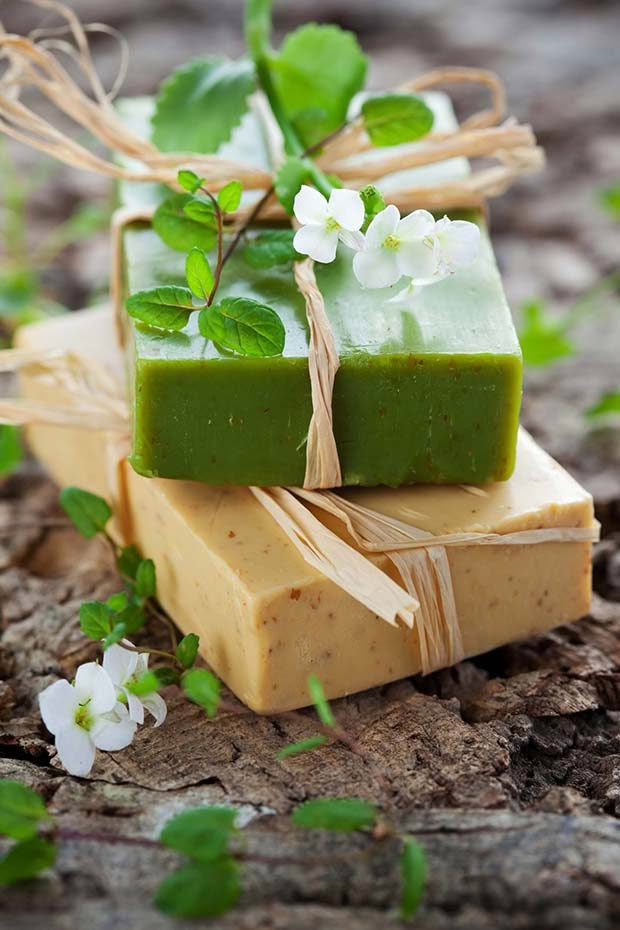
A bubbly soapmaker has turned her favourite hobby into a cottage industry on her Otago small block.
Words & Images: Diana Noonan
It’s a brave farmer who ousts the prize rams from the house paddock and confines them to an out-of-sight field at the back of the property. It’s more courageous still to take over a husband’s workshop. But Jude McNab, who has done all this and more, isn’t lacking when it comes to courage, and that’s probably why her business venture into the world of cottage industry soap-making is taking off at such a pace.
Nestled on a lifestyle block in the picturesque Owaka Valley, deep in the remote Catlins region of coastal south-east Otago, Jude has embraced downsizing the farm, family restructuring, soap-making and marketing like the true professional she is. The long-time crafter has dabbled in everything from felting to weaving but it wasn’t until a friend came to visit one weekend and the two of them decided to have some fun making homemade soap that Jude really became inspired to turn an enjoyable craft into a business.
“My friend went home and I just kept on going!” laughs Jude, who has a personality as bubbly as her soapy creations. “I don’t remember exactly when, but there came a time when Ross [Jude’s husband] began complaining that every spoon he used to stir his coffee tasted of soap.”
That comment was the very excuse Jude needed to take her soap-making out of the house and into the adjacent studio where Ross was working part-time as an audio producer.
“I just lost myself out there,” she says. “The soap-making process is so relaxing and so much fun. After a while, when I didn’t show up for dinner, I began getting texts from the family suggesting I come inside!”
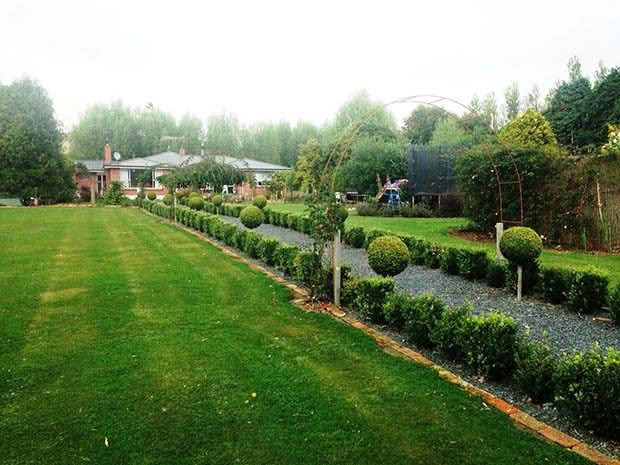
By then Jude had also become a dab hand with the lawn mower, which may account for stage two of the business plan.
“One day I decided to spruce up the property by mowing a strip of paddock down as far as the mailbox. It looked great so I kind-of kept on going.”
“Kept on going” meant extending the manicured strip into the-then 162ha (400 acre) farm’s ram paddock and establishing a parkland-style garden of roses, dahlias, shrubs and 5000 daffodils (2000 of which are of show-quality standard). The new garden perfectly complemented the many already established trees which had been planted by Ross’s parents 50 years earlier.
When Jude and Ross eventually downsized the property with a view to relocating, and then found they couldn’t bear to part with treasured memories of what had been a much-loved family farm, they decided to stay put and to make the soap-making and garden the focus of their new lifestyle.
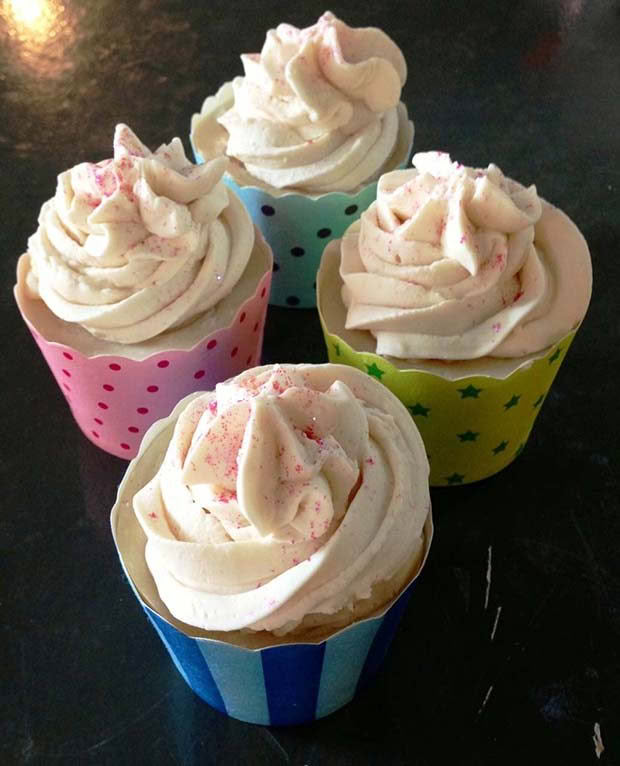
“I’m so lucky that Ross is totally supportive of what I’m doing,” says Jude. “The necessary changes have meant a complete role reversal where home and family are concerned.”
As the business has grown, Ross has left farming and audio production to cook, clean, and take primary responsibility for parenting Millie (the couple’s 6½ year old daughter). Ross is also front person in the gift shop which runs seven days a week from the couple’s lifestyle block and which, at the time of writing, was about to move into purpose-built premises featuring a self-service kitchen, potential workshop space (for classes) and indoor-outdoor seating for 100 guests on a covered terrace leading onto the garden.
“Ross really likes being in the shop,” says Jude. “He enjoys chatting to people, and the only time I ever see him looking exasperated is when I poke my nose in the door and want to discount everything the customers are buying!”
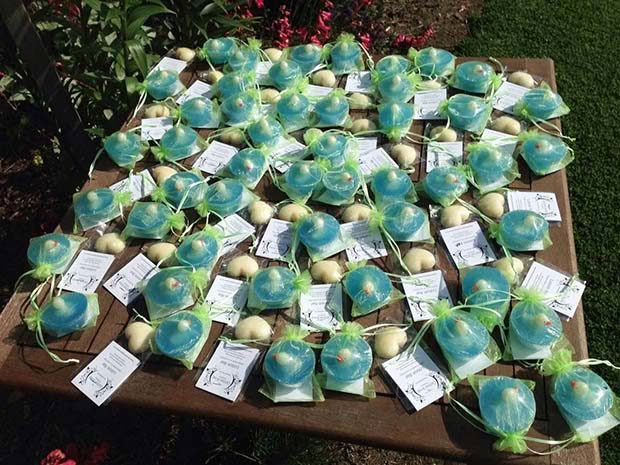
Glow in the dark soaps sent to Starship hospital as a gift for the kids at Christmas.
Ross’s anxiety is understandable given Jude’s natural generosity, not only toward customers but to her community and organisations and individuals further afield. A carton of pretty glow-in-the-dark ducks floating on blue soap ponds was recently packed off to the Children’s Starship Hospital as Christmas gifts from the Catlins Soap Company, and a bright idea of Jude’s to create soap daffodils helped her local branch of the Cancer Society raise $700. She currently has a pink-ribbon breast cancer soap ready to help with the next fundraising round.
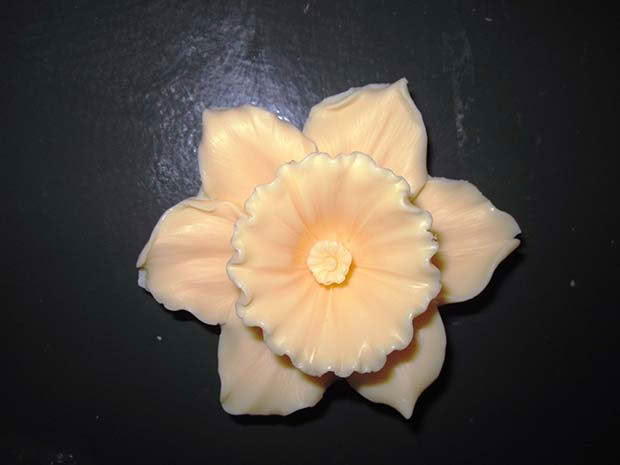
Wherever possible, Jude likes to shop locally for the business’s requirements. Goat milk and the wool around her woolfelted soaps is Otago-sourced, as are the coffee grounds that form the abrasive ingredients in her rich, dark blocks of farmer’s and gardener’s scrub soap. Oatmeal comes from Dunedin’s Harraway’s factory, and the printing of boxes and pamphlets is all handled close to home. The palm oil, which is not obtainable in New Zealand, is sustainably produced.
It’s tempting to assume that Jude has a fleet of minions to do the work while she gets on with the planning side of the business but that’s not how she likes to manage things.
“I want to keep the soap company a boutique operation,” she confides. “That means I have a hands-on approach and do all the soap-making, packaging and marketing myself.”
Marketing can mean long road trips with numerous days spent away from home. Wherever there’s a big gathering, especially a rural one, Jude is likely to be there, taking her wares to the Waimumu Field Day, the Wanaka Show and the Christchurch A&P Show.
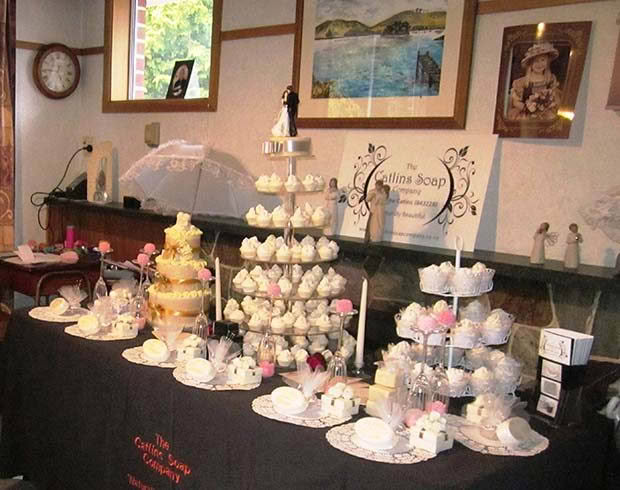
Preparation is as important as being there which is why when I visit, entering the living room is like walking into a hall decked out for a wedding reception. Jude’s next presentation is at a wedding expo and she’s rehearsing her table displays. Sumptuous doesn’t do justice to what she has planned: the elegantly-laid table brims over with a gorgeous three-tiered soap wedding cake, trays of cupcakes, and delicate little soap favours sitting on the upturned stems of wine glasses. The thought of dismantling it all, packing it into the car, and then setting up shop when she reaches her destination is mind-blowing.
However, ‘hard’ and ‘work’ aren’t words that feature in Jude’s vocabulary. When she’s not attending shows she’s taking felted soap workshops for adults and children or speaking to a wide variety of groups.
Recently, over a period of six weeks, she exhibited at 10 CRT ladies nights between Invercargill and Blenheim, covering 10,000 kilometres in the process.
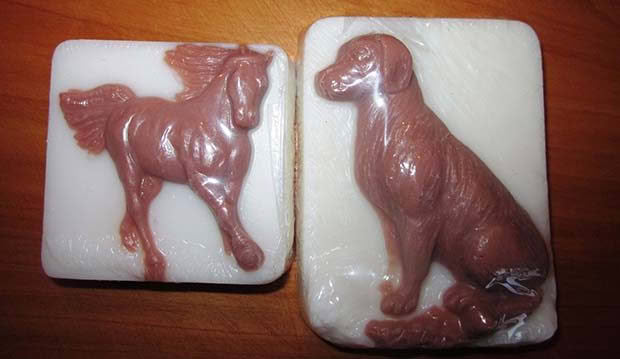
But what she most enjoys are her visits to retirement homes around the country.
“Taking my soaps into rest homes is enormously satisfying,” says Jude. “I’m able to let folk, who might otherwise not have an opportunity to do their own gift buying, select little treats for themselves or family and friends. They get to touch and smell all the soaps and because everything is so inexpensive, residents don’t have to anguish over whether they can afford something.”
Kindness doesn’t preclude a keen sense of business acumen however, and Jude knows an opportunity when she sees one. Recently, she hit on the idea of sponsoring a jersey in the Southland Rugby team.
“It made me smile to think of a soap company – all bubbles and smellies – having its name on the back of a mudsplattered rugby jersey!” she laughs. Her smile soon faded when she realised that it would cost over $3000 to sponsor the jersey of a player who was more likely to sit in the reserves than get the soap company’s name onto the field.
Undeterred, Jude met with the team marketing manager to discuss an alternative idea and eight minutes into the meeting had secured the rights (in soap) to the team’s famous stag logo. The Catlins Soap Company is now the soap-supplier of choice to Southland Rugby, and promotes the team through private sales of boxed soaps, with $1 from every sale going back to Rugby Southland.
Jude is particularly proud of her lotion bar, a creamy-coloured solid heart-shaped balm which when held in the hands melts just enough to create a soothing skin cream. She obtained the secret recipe from a Canadian woman she met on the internet while researching soap-making techniques.
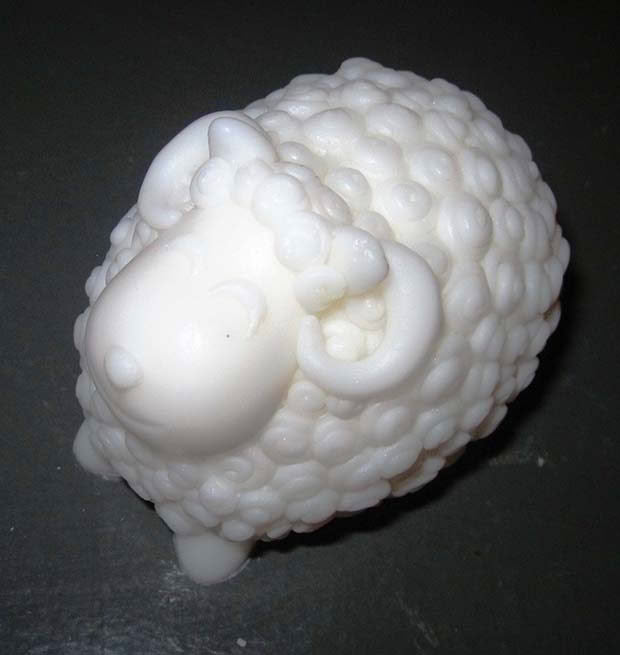
A farming girl at heart, Jude’s collection of farm-themed soaps is also growing. Cute black and white sheep, farmer’s scrub-soap, and the shearer’s hand piece are favourites, but when it comes to finding a suitable gift for a neighbouring child who is feeding the chooks for you while you’re away for the weekend, nothing beats the farm bike, or the tractor soap which comes complete with a cleverly embedded five dollar note.
And it’s Jude’s farming background that has brought the greatest excitement to the company. A wool handler in her youth (she gained a placing in a local competition when eight months pregnant with her son, Daniel), Jude has taken her new business back into the sheds, not only as a sponsor of various shearing and woolhandling competitions throughout New Zealand, but through the development of an exciting new product.
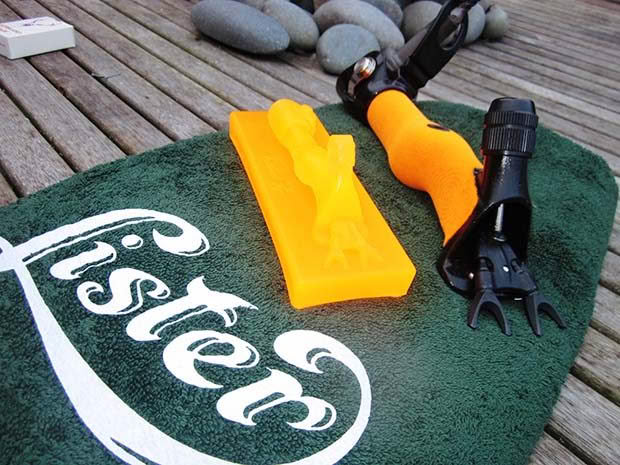
Davis Fagan’s shearing handpiece and the soap it inspired.
“I plucked up the courage to approach David Fagan (Te Kuiti’s five-times world shearing champion) with an idea I had,” explains Jude. “I asked him how he’d like to see his famous shearing handpiece crafted in soap. I thought he’d laugh but he took me totally seriously.”
David connected Jude with Lister, the British shearing company which makes the ‘Nitro Handpiece’ designed by David. With their approval, Jude teamed up with a Taiwan-based silicon mould manufacturer, developed a new soap-making method to accommodate the requirements of the intricate mould, and the soap handpiece was born. The unlikely product has been on the market only since March but sales are already looking good, especially in the overseas market. While Jude agrees the project has been tremendously satisfying, she also confesses that success inspires even more ideas – sometimes more than she has time to develop.
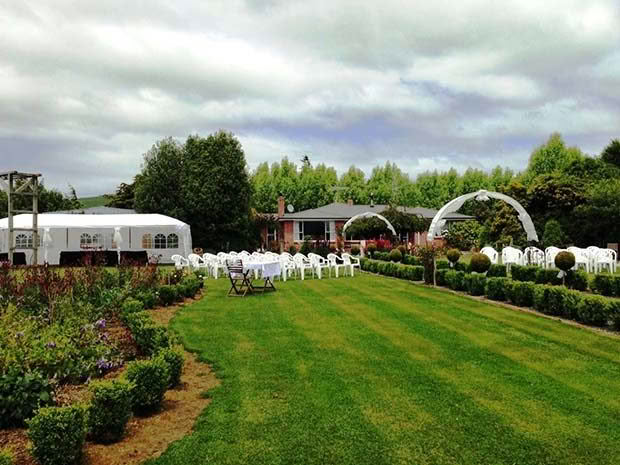
As for running a successful business from a very remote part of the country, Jude is optimistic.
“Yes, there are drawbacks,” she agrees. “Posting the shearing handpiece to Britain, for example, is costly. And travelling anywhere takes time, but that’s not always a negative. Once, when Ross and I were driving to Dunedin [Jude was the passenger] I had my mobile phone headset on my head and my laptop balanced on my knees. By the time we arrived in the city an hour and a half later, I’d been in touch with Canada, Taiwan and Auckland, and several important deals were done and dusted.”
Does she ever worry that her ideas will be copied or that the cottage soap-making market will become saturated?
“No,” says Jude firmly. “I used to be concerned but I now realise that a brand is everything. Establish who you are and what your product is and no-one can take that away from you.
“I like what I do. I like what I make, and what it means to people. If I can grow the business but keep the hands-on approach, I’ll be happy.”
Recent arrivals in the garden include three gorgeous new sculptures, and they hosted an outdoor wedding on the property last December and have bookings pending for more. One can only hope Jude manages to rein in her enthusiasm in time!
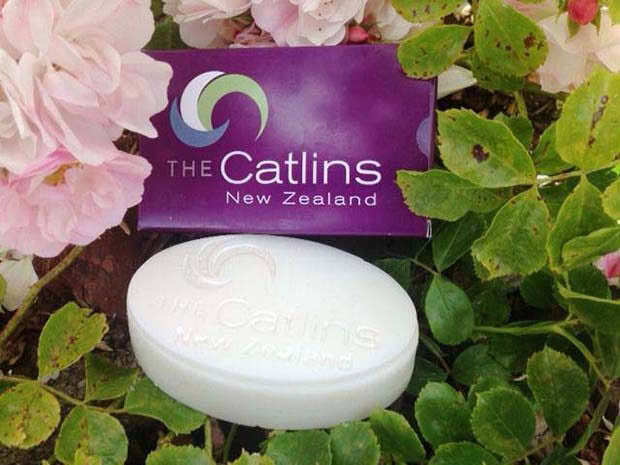
JUDE’S TIPS
Jude’s employs two different methods of soap-making: a start-from-scratch recipe which she describes as “the sort of soap your granny used to make”, and a more commercially based process which works better with finely patterned soaps.
“Whichever method you go for, it takes time to perfect,” says Jude. “Enjoy the process and don’t be disappointed if the results aren’t 100 percent successful first time round.”
Love this story? Subscribe now!
 This article first appeared in NZ Lifestyle Block Magazine.
This article first appeared in NZ Lifestyle Block Magazine.
